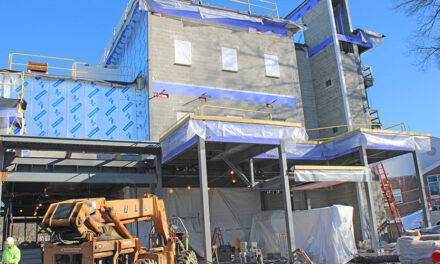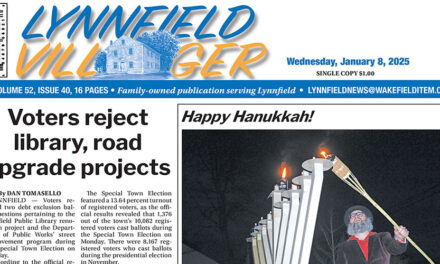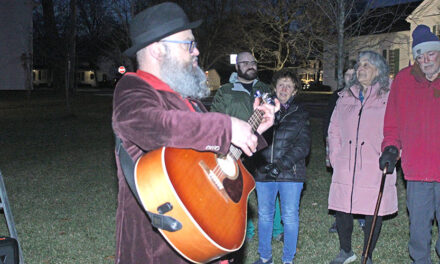Published in the November 29, 2017 edition
By DAN TOMASELLO
LYNNFIELD — Seven minutes.
That’s all it took on Nov. 20 for the Board of Selectmen to approve the town’s fiscal year 2018 property tax rates, raising the average single family homeowner’s bill by $156.
The selectmen voted unanimously to set the tax rate at $13.77 per thousand valuation for residential property. The commercial, industrial and personal property (CIP) tax rate was set at $17.09 per thousand valuation. In FY’17, the residential tax rate was set at $13.78 and the commercial rate was set at $16.80.
“These rates can change slightly during the approval process,” said Assessing Manager Ray Boly. “They are subject to approval by the Department of Revenue.”
The “average” tax bill for a single-family home in town would be $8,681. The average tax bill for commercial property would be $47,512.
“The average residential single-family would pay an additional $156 a year, or 1.83 percent,” said Boly.
Boly said the biggest change in FY’18 was associated to residential condominiums. The average tax bill for a condominium in town would be $7,879.
“The biggest increase would be in condominiums and that was due to the value increasing there,” said Boly. “They would go up roughly $811 annually or 11 percent. That was due to the value changes at Windsor Estates.”
In response to a question from Selectmen Chairman Chris Barrett, Boly said the valuation increased for condominiums because there were condos sold at Windsor Estates, 527 Salem St., for $1.1 million or $1.2 million.
“It brought the rest of them up as far as an average goes,” said Boly. “But the overall increases were 4, 5 or 6 percent on the other condominiums.”
Boly noted, “This year was an interim year for valuations.”
“Residential values were roughly up 2 percent overall and commercial’s are up 8 percent,” said Boly. “Without MarketStreet, commercial’s would be up less than 1 percent.”
Boly proposed that the town use a shift similar to previous years, which was supported by the selectmen.
“Historically, Lynnfield since fiscal year 2004 has chosen a shift factor to let residential taxpayers and commercial taxpayers share the tax burden equally,” said Boly.
Boly noted if the town did not shift the tax rate, the residential and commercial tax rate would each be $14.24 per thousand valuation.
“It would have been in an increase to both the residential and commercial tax rate,” said Boly.
Selectman Dick Dalton commended Boly for explaining the tax rate changes in a clear and concise manner.
“I would like to compliment Ray,” said Dalton. “The package we got over the weekend in the selectmen’s packet was right on. It clearly led me through the whole analysis and gave examples of how the various types of properties would be impacted. It allowed me to fully understand all of the issues.”
Barrett agreed.
“I thought we fully prepared for tonight,” said Barrett. “I appreciate the hard work.”
Barrett inquired if the Board of Assessors wanted to weigh in on the tax rate proposal.
Board of Assessors member Richard O’Neil said the assessors had no comments about the tax rate. “We have been through it a hundred times,” he said.
There were no members of the public who spoke during the public hearing on tax classification. This year was completely different than last year’s hearing, when a number of MarketStreet business owners railed against the commercial tax rate.




